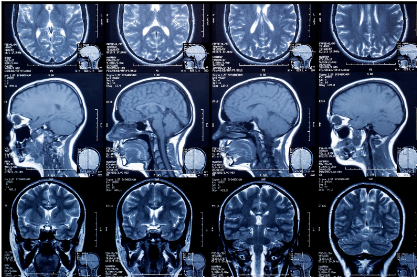Alzheimer’s disease is a degenerative brain disorder affecting memory, thinking abilities, and everyday functioning ability. More than six million Americans ages 65 and older are estimated to be affected by Alzheimer’s disease.
Alzheimer’s disease is characterized by the buildup of proteins in the brain, resulting in abnormal clumps, called amyloid plaques, and tangled fiber bundles, called tau tangles. Additionally, neurotransmitters lose connections and cannot send messages from the brain to the body. In the later stages of Alzheimer’s disease, neurons die and cause brain tissue to shrink.
Medicines can improve symptoms or slow the progression of Alzheimer’s disease, but there is no treatment for curing Alzheimer’s disease.
With new clinical trials, this could all change. A BenfoTeam clinical research team, administered by the Medvadis Research Institute, began an Alzheimer’s clinical trial involving over 400 patients at over 500 national US sites.
BenfoTeam scientists have found thiamine, also known as vitamin B1, is unable to enter the brains of Alzheimer’s disease patients, despite having sufficient supply in their blood. Thus, BenfoTeam aims to increase thiamine levels in the brain by significantly increasing thiamine levels in the blood. Benfotiamine is a lab-made version of thiamine (vitamin B1). Benfotiamine is a “prodrug,” or an inactive compound. Upon entering the body, it turns into an active form. Then, it converts to thiamine and enters cells more efficiently than non-lab-made thiamine.
Benfoteam scientists suggest benfotiamine treatment slows down the progression of cognitive impairment. Trial results indicated reduced increases of toxic protein modifications in the brains of Alzheimer’s disease patients.
Individuals participating in the BenfoTeam clinical trial ingest a benfotiamine dose of 300 mg twice daily. The trial lasts for 18 months, during which individuals partake in screenings. Fifty percent of the study participants are given the study drug, while the other fifty percent are given an inactive pill, also called a placebo.
Benfotiamine is reportedly generally well-tolerated by patients. Yet, some individuals may experience mild to severe side effects. Gastrointestinal discomfort can present itself as nausea, bloating, or stomach pain. Allergic reactions can cause rashes, itching, swelling, or anaphylaxis. Other side effects include headaches and dizziness.
If successful, benfotiamine could be a safer, more cost-effective, and accessible Alzheimer’s disease treatment option. Sydney Dawes, a clinical researcher at KCA Neurology in Tennessee, praises the accessibility of benfotiamine. Dawes states, “You have other drugs, IV drugs, that can cause brain hemorrhages. Instead of that, (with BenfoTeam) you are just taking a vitamin, twice a day, with low side effects and benefits to memory.”
Tim Muther, an Alzheimer’s disease patient from Holliston, Massachusetts in his late 70s, participates in clinical trials. Muther is optimistic about the outcomes of Alzheimer’s disease clinical trials. He states, “I’m hoping that by me participating and maybe I’ll give some hope to others. I can feel some benefits from what I’ve been doing.”
Although limited treatment options are currently available, BenfoTeam’s clinical trial provides both research scientists and patients with hope for the future of Alzheimer’s disease treatments. The BenfoTeam clinical research trial is one of many studies with promising data. Benofotimaine’s success could mark the discovery and development of a new, safer, and more convenient Alzheimer’s disease treatment.





































